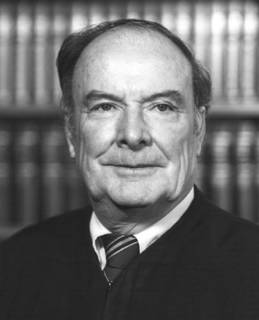"Repression and Denial in Lawyering"
You know that I can be fairly conflicted about my vocation. As the man told the blade runner, "I have seen things you people wouldn't believe...", images of the harm, gory and horrible, that my clients have caused or allowed to be caused to others: their children, their parents, strangers, strangers' children. The images stay after the cases are over, and they accumulate in a place inside.
I'm pretty happy to be in a larger office now, doing few violent crimes, no sex crimes, no child victims. No more murders (inshallah). My caseload these days is almost all crimes against property, "C" and "B" felonies in this state, no "A"'s. All the same, my clients have left their victims afraid and insecure in their own homes. My effort continues to go to lessening the impact of the book as it's thrown at my clients. At the same time, while my people are culpable moral actors, they are humans first, and as scared and sad as they have every right to be. They deserve not to have the book thrown at them as forcefully as the prosecutor or victim might like.
Over time, to stay true to being a p.d., I've used a variety of strategies, most of them "maladaptive" (my wife in particular can tell you how well my "worn out from not feeling the pain and sadness" strategy worked). I'm working on it still. That's why today I was very grateful to have stumbled across this paper by Professor Susan Bandes of DePaul University College of Law.
Abstract:
Criminal defense lawyers are often asked the question, "How can you defend those people?" Yet that question, so framed, has a number of compelling answers and isn't particularly difficult. The more interesting question is: what emotional strategies do attorneys employ in order to zealously defend people accused or convicted of horrific crimes? What is required, and what toll does it take, both professionally and personally? This article examines the first person accounts of several criminal defense lawyers and one prosecutor, and also draws on my own experience as a criminal defense attorney. It finds in these accounts a number of commonalities in the ways in which attorneys use defense mechanisms to assist them in doing their work. It then looks to psychological literature, including clinical descriptions of defense mechanisms such as repression, denial and splitting, and more theoretical accounts of the psychological and moral consequences and benefits of using these mechanisms. It concludes that defense mechanisms are necessary, up to a point, to enable lawyers (both in criminal defense and elsewhere) to do their work, but that the line between the adaptive and maladaptive uses of such mechanisms is easily crossed, both professionally and personally .
I found that reading it helped. You may find it worthwhile too. I think that these are things we need to discuss amongst ourselves if we're going to do this work for a long time.
Update: First, Alaskablawg put this better than I did. Second, the author of this article and I have traded e-mails. She is still researching and teaching on these issues, and would entertain comments from other criminal defense lawyers. Her contact information is included on the same page where you can download her paper: Bandes, Susan, "Repression and Denial in Lawyering".






0 Comments:
Post a Comment